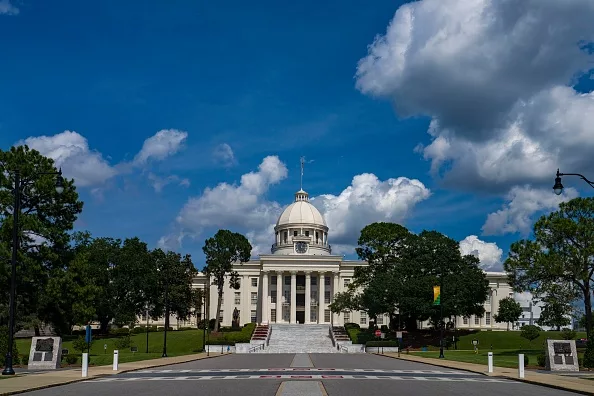
(MONTGOMERY, Al.) — More than a week after the Alabama Supreme Court upended in vitro fertilization access in the state with its ruling that frozen embryos are considered children, increasing public outcry has spurred hope for legislative movement in the Statehouse.
Last week, the court ruled that “unborn children are ‘children,'” which led several facilities in the state to halt IVF treatments amid concerns that their practices could run into legal troubles.
There are multiple proposals in the Alabama House and Senate that could restore IVF access in the state, authored by both Democrats and Republicans. But the clearest path is for a Republican-led bill that is set to be introduced by State Sen. Tim Melson in the Senate this week. The bill is expected to describe an embryo as a “potential” life, but clarify that it is not a human life under law until it’s transferred to a uterus and determined to be a viable pregnancy.
Republican Gov. Kay Ivey threw her support behind that measure on Friday.
To turn up the pressure on lawmakers, advocates have planned a large gathering at the state Capitol on Wednesday. Organizers say there could be hundreds of people — including doctors and IVF patients — who will travel to Montgomery to protest the state Supreme Court decision and make their voices heard in the state legislature.
The “day of action” is planned to coincide with a hearing about Melson’s bill before the Senate Health Committee. It’s expected to be a public hearing, and people will testify with personal stories about their IVF journeys. Advocates say they have more than 50 people willing to testify so far.
Democratic House Minority Leader Rep. Anthony Daniels told ABC News that he hopes legislation will pass both chambers within two weeks — if not sooner — to restore IVF treatments in the state.
Doctors at the three Alabama clinics that have paused IVF tell ABC News it’s unlikely they will restart treatments until legislation is passed to protect IVF, or until the Alabama Supreme Court reconsiders its opinion.
In the ruling issued over a week ago, the court set a new precedent by determining that embryos are children, opening the door to civil and potentially criminal lawsuits for people who handle them. Within a few days, roughly half of the state’s IVF clinics paused treatment for fear that they could face wrongful death lawsuits — or potentially criminal charges — for discarding unused embryos, a routine part of IVF.
At the federal level, Biden administration officials have yet to announce significant policy options to protect IVF access in Alabama, insisting that their options to use executive action to protect abortion rights, including in ways that would keep IVF intact, are limited.
While there have been preliminary conversations over the past week about potential guidance, nothing has been finalized or decided, an administration official told ABC News.
White House Gender Policy Council Director Jen Klein, in an interview Sunday on MSNBC, suggested examples of the kinds of actions the administration could be exploring.
“Absolutely, there are things that the administration can and has done already. The president has issued three executive orders and a presidential memorandum to protect access to abortion and contraception, to protect patients’ privacy, protect the right to travel, and … the right to medication abortion, which as you know is more than 50% of abortions in this country,” she said.
Klein also said that the White House would likely hold meetings with impacted doctors and patients from Alabama “soon” in Washington, similar to how they held meetings with abortion-rights advocates from Mississippi after the Dobbs ruling.
Fundamentally, however, the White House insists — as they have for over a year — that Congress would need to pass a bill to put a nationwide right to reproductive care back on the books.
Without more Democratic support, though, that’s not likely.
Two years ago, 195 Republicans voted against a bill to protect access to birth control and right now, 125 Republicans — including Speaker Mike Johnson — are signed on to a bill called the Life at Conception Act, which would define life as the moment of fertilization. The bill would imperil IVF access in a similar way to the Alabama court ruling.
Democratic Sen. Tammy Duckworth, who has introduced a bill to protect IVF nationwide, told Martha Raddatz on ABC’s “This Week” that “it’s been crickets” from her Republican colleagues since the Alabama ruling.
For now, that’s left the White House to wield the Alabama ruling for political currency, rather than stepping in with any significant policy.
In a memo sent on Monday, White House press secretary Karine Jean-Pierre called out Republicans for publicly supporting IVF access while also backing legislation that would restrict it.
“Republican officials think they can obfuscate their way out of their support for these extreme policies,” Jean-Pierre said.
“No attempt to ‘rebrand’ can change the fact that their true colors are on the record. They have spent decades trying to eliminate the constitutional right to choose, and undermine reproductive freedom everywhere. Their agenda is clear, they’re just worried it’s not popular,” she said.
Copyright © 2024, ABC Audio. All rights reserved.
